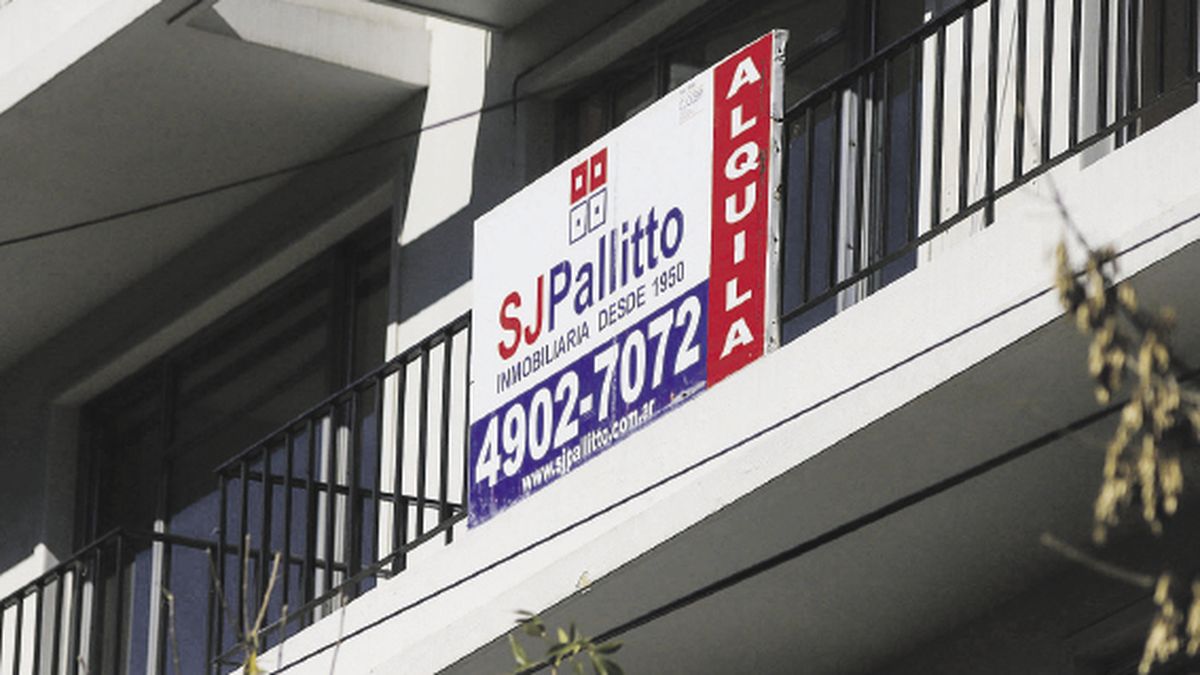After the Executive promulgated the reform of the Rental Law this Tuesday, August 17th through Decree 533/2023published in Official bulletin. In this way, the modifications in current regulations begin to take effect. Among them, the possibility of applying updates semi-annually through the “Own House” indexprovides tax benefits to owners, prohibits property listings in foreign currency and clarifies that the Contracts must be made in pesos.
Thus, the Legislative branch is trying to “calibrate” the rental market, which after the enactment of the law in June 2020 and the inflationary acceleration, currently has scarce supply, sharp increases and dollarized contracts.
The president of Unique College of Real Estate Brokers of the City of Buenos Aires (CUCICBA) Marta Liotto assured Ambit that although the regulations in force until today in some way prohibited payment in foreign currencythe Government should deal with “an economic and exchange policy that stops destroying the value of our currency”, so that the rental market stops becoming dollarized.
The pressure on the foreign currencies was growing as the presidential electiongiven that the market takes for granted that there will be a devaluation regardless of who takes over. Last week, the blue dollar closed above $1,000. Added to this is the fact that the candidate with the most votes in the PASO, Javier Mileiproposes a dollarization of the economy.
rentals in dollars on platforms.PNG
According to the ban on publications in foreign currency Several doubts arise, especially the possibility of maintaining the announcements made prior to the sanction of the norm, since no law is retroactive. In that sense, the lawyer specializing in horizontal property, Eduardo Awadexplained to this newspaper that it would not be of much use to maintain advertising in dollars, if the contract cannot be made in this currency.
However, How are the platforms going to operate with this new regulation? From Mercado Libre Real Estate They detailed that what they will look for from their place is “accompany the actors to adapt to the current rental law” to continue maintaining your ads and being able to rent your properties.
As of the entry into force of the reform of law 27,551, the leading unicorn company in Argentina stated that the publications of rentals for residential purposes will be made starting this Wednesday, October 18 “They can only be made in local currency“. Likewise, regarding previously active publications in dollars, “users will be notified indicating what is stipulated by the new rule so that they adapt their advertisements.”
For its part, since Zonaprop stated that they do not participate in the publication process, but rather the platform sells the spacewhereby It is not within their powers to modify the advertisements.
Thus, the publications made must be reconverted into pesos. But, What price would they be readapted to? At this point, each owner or real estate agency can decide the price at which they publish their apartment. The price they decide to set will be up to the landlord, either by transferring the cost in blue dollars or financial dollars to pesos or even raising it above of that change.
Done the law done the snare
In the market, there is speculation that the next president could repeal the law or modify it in a “more market-friendly” way and therefore harm tenants. For this reason, some are already evaluating ways to evade the regulations.
Inwards, we begin to talk about rental contracts for “commercial locations or offices”, instead of housing, which would allow a two year contract and quarterly increases agreed between the parties.
Although the National Constitution in it article 14 bis proclaims the “access to decent housing“(which in theory is a human right), in Argentina it is almost impossible for a worker to buy a property and currently the possibility of renting in the cities is becoming complicated due to skyrocketing prices. In CABA, for example, today a studio apartment exceeds $190,000, while a minimum wage is currently $132,000.
The lack of supply increases rental prices: will anything change with the semiannual updates?
Although the updates would be semiannual from the implementation of the reform, they would be carried out through the “Own House” index that elaborates the Ministry of Habitat and which is usually located below the inflation. This calculates with the lowest indicator between the salary variation and the consumer price index (CPI). Furthermore, it incorporates the Salary Variation Coefficient with a capacity equal to 0.9, so Instead of reflecting the average salary variation in its entirety, it will only do so in 90%.
For this reason, CUCICBA considered that this is a “terrible modification”, since not only does it not solve those provisions that generated the crisis in the market – such as three-year contracts – but it makes them worse.
“By maintaining three-year contracts and defining indexation through the “Casa Propia” Index (which advances at half inflation), this reform will deepen the withdrawal of units from the marketincreasing prices and making it even more difficult for tenants to find a roof over their heads,” he noted. Liotto.
How to calculate the “Own Home” index?
To calculate the rent updatewhich became biannual Instead of annually, tenants will have to take the values of the Own House coefficient of the last six months, multiply them together, and multiply that result by the number of the current rental fee.
The count would be: 1.0522 x 1.0557 x 1.0558 x 1.0571 x 1.0576 x 1.0628.
own house index.PNG

In this case, if the fee from May is $100,000 in November 2023, it would cost $139,350 for six months.
Rental law reform: what taxes landlords will no longer pay
Regarding tax benefits, the law proposes monotax payment exemptions to income coming exclusively from the rental of up to two properties. Also I know exempts from payment of personal property tax to properties intended for residential rentals and Tax on Debits and Credits (“check”) for linked operations of contracts.
The law, which invites provincial jurisdictions to approve other tax benefits, allows the owner and tenant deduct from Income Tax 10% of the total value of the annual rent.
Source: Ambito




